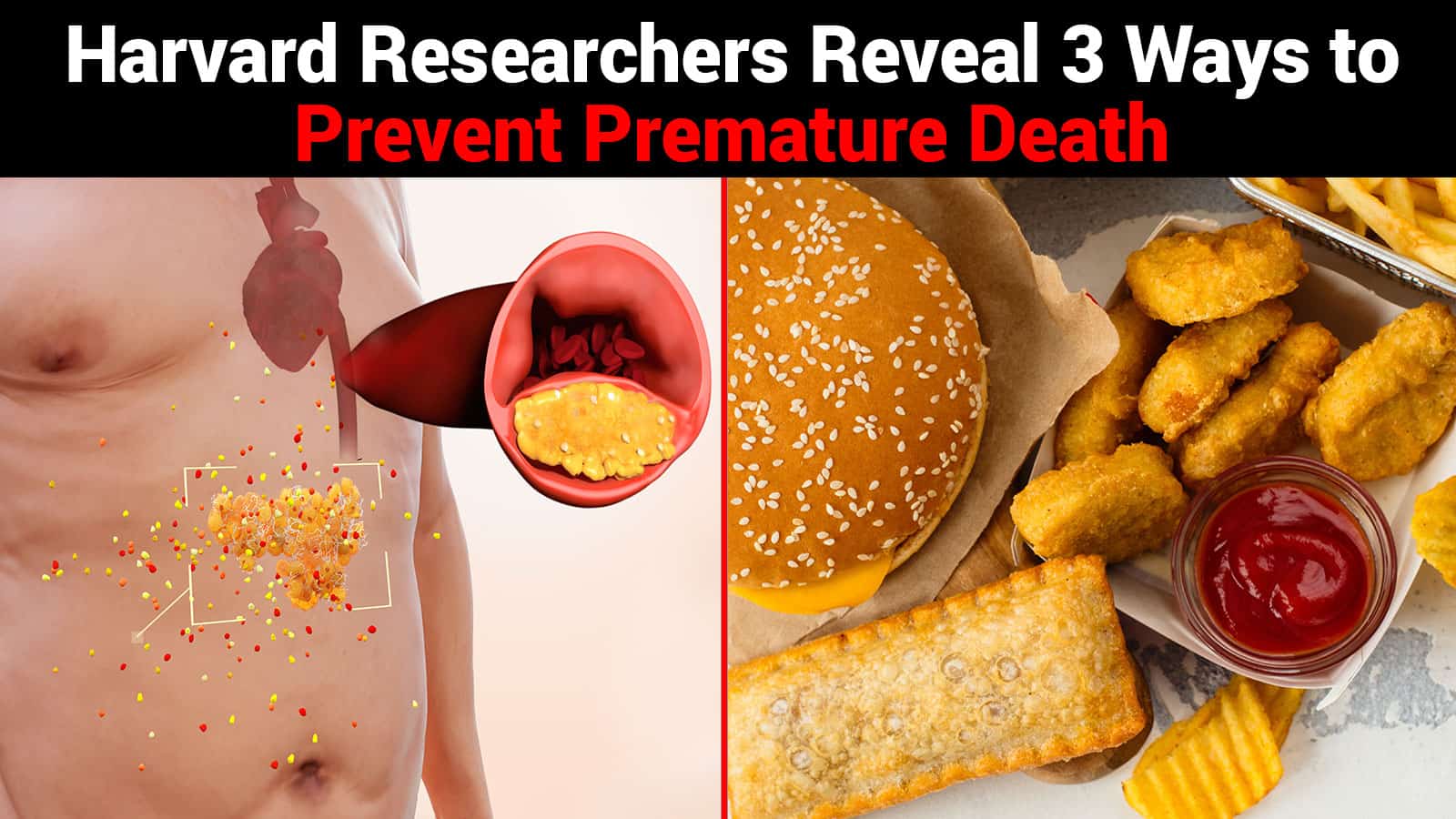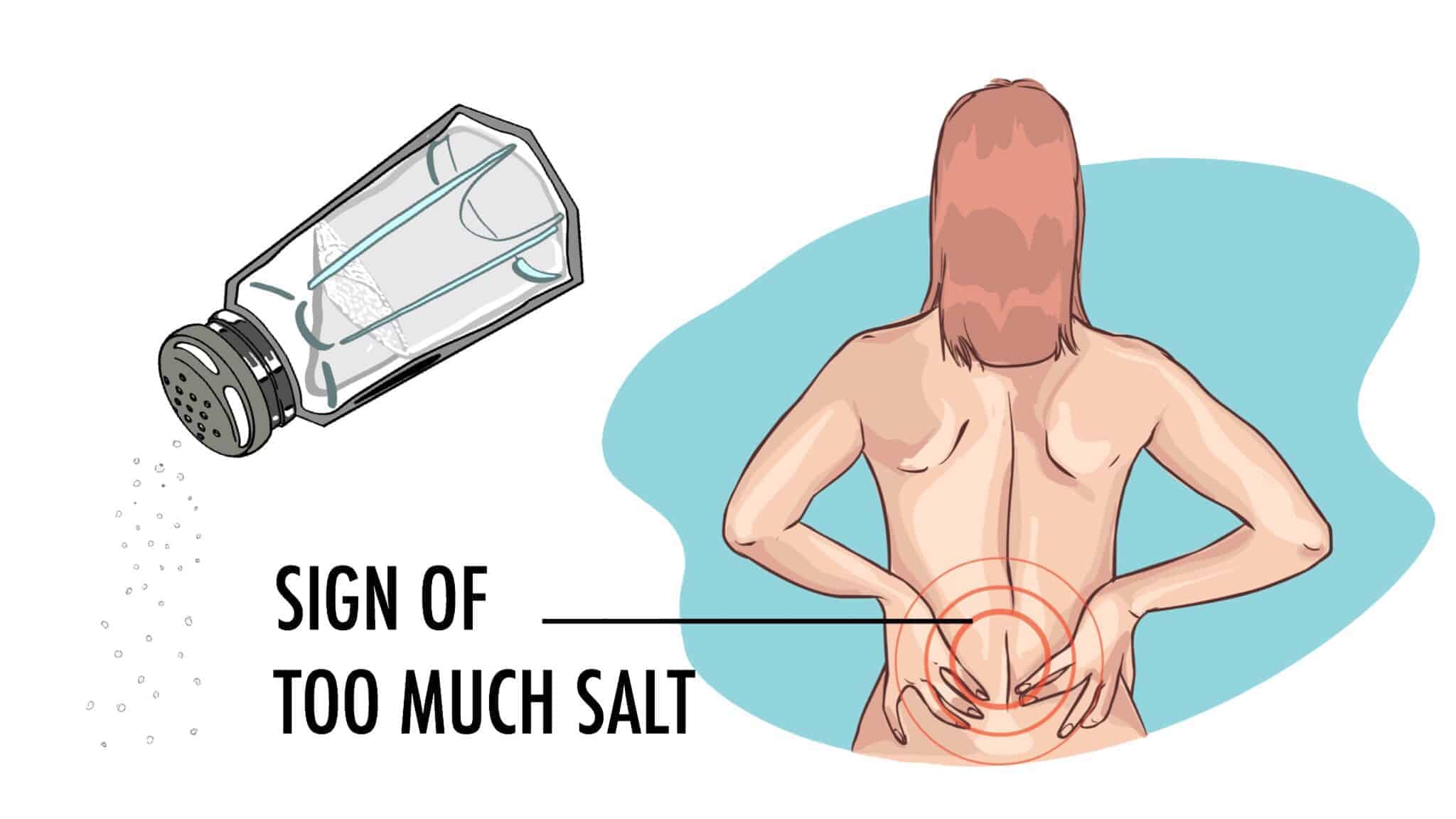Most people want to live long, healthy lives. It’s safe to say that almost no one wants to have their life cut short by passing away early, especially for potentially preventable reasons. That’s why scientists around the world have tried for so long to figure out how to prevent premature death.
As it turns out, years upon years of research and statistics collected by the World Health Organization have come in handy. This is alongside countless other research papers relating to mortality and its links to varying situations. Through these means, researchers have been able to draw impressive conclusions that, today, can save lives.
It sounds a bit overwhelming, but what if I told you that there are just three areas you need to pay attention to in order to greatly reduce your risk of early mortality? That’s right – that’s just three places to focus on for longer life.
Harvard Researchers Reveal 3 Ways To Prevent Premature Death
The Three Factors Leading To Premature Death
Researchers used World Health Organization numbers, statistics, and findings to determine the most common causes behind premature death. They then found links between those causes and common unhealthy practices and factors that increase the risk of those causes. Here were the three factors found.
1. High Blood Pressure
High blood pressure ups the risk factors of developing conditions like stroke and heart disease. Both of those aforementioned diseases are responsible for the most deaths in the US. Almost 75 million, or one-third of, American consumers deal with high blood pressure – a shocking figure that does not bode in a positive light for their futures. (1)
Around 1,100 people pass away on a daily basis due to high blood pressure in America alone, resulting in $48.6 billion spent annually. And yet, just half of those who have the condition are receiving adequate treatment in the United States. That percentage drops significantly on an international scale.
Better international treatment of this disease could help 39.4 million individuals worldwide live longer.
2. Trans Fat Consumption
People often believe that all fats should be avoided, but trans fats are the main culprits behind premature death. Fat in itself can be healthy in the right doses, but trans fat is almost never healthy at all. Not only does it increase bad cholesterol in the body, but it also decreases the positive cholesterol. (2)
Trans fat consumption in excess, therefore, can contribute to the risk of heart disease and stroke – which we know are the leading causes of death in the United States. If everyone cuts out trans fats from their diets – or significantly lowers them – as many as 14.8 million premature deaths can be prevented.
3. Sodium Consumption
Sodium, more commonly just referred to as salt, is responsible for increasing cardiovascular disorder risk. It contributes to higher blood pressure, too, and it is in good need of a 30% decrease in consumption across the board.
Worse still, many people believe they are consuming less salt than they really are. This is because most of the salt they consume doesn’t actually come from salt packets and shakers – it’s in cooked food when dining out and buying pre-made food.
By right, most people should work on trying not to eat more than 1,500 mg of sodium per day, but most people go far beyond that. As such, cutting down a thousand mg from your daily salt intake will already begin to make huge positive changes in your life. (3)
If the world began to ensure a healthier salt intake level, a whopping 40 million premature deaths could be prevented.
In order for real change to be enacted that can significantly reduce premature mortality rates, worldwide cooperation is necessary. In the meantime, though, as we wait for potential change enacted by world leaders and other authorities, you need to do your part to mitigate your own risk.
Reducing High Blood Pressure Risk
If you have been diagnosed with high blood pressure, you should be taking some kind of medication to have it under control. But if you don’t actually have this issue yet and are simply seeking a way to lower your chances of developing this problem, here’s how to do so.
· Exercise More
Exercise helps to strengthen your heart, allowing it to become better at pumping blood through your body. Plus, exercise has lots of other benefits, too – it improves positive thinking, gives you extra energy, and makes you healthier overall. Just half an hour of walking daily will do the trick!
· Lessen Refined Carbohydrate Intake
Plenty of diets work well when it comes to increasing overall health and allowing weight loss, but low-carb diets take the cake for lowering blood pressure. Cut back on white carbs and sugars, and you’ll be surprised that you can still feel full without them!
· Drink Less Alcohol
Did you know that alcohol consumption is linked to around 11% of all hypertension cases? You don’t have to cut out alcohol completely; in fact, low amounts can be good for your heart! Just make sure you’re drinking moderately, and not in excess.
· Eat More Calcium
Unfortunately, calcium can’t bring down high blood pressure, but studies indicate that it can promote lower, more balanced levels in those who do not yet have hypertension. Take 1,000 mg of calcium on a daily basis for best results.
· Lose Weight
If you’re packing on some extra pounds, losing weight can play a significant role in lowering your blood pressure. Just dropping 10 pounds can work wonders for you.
· Eat More Potassium
Potassium reduces the amount of excess sodium within the body, and it’s also good for making sure that there is less pressure on your blood vessels. You can get potassium from bananas, leafy green vegetables, dairy products, some fruits, and fish.
· Manage Stress Wisely
Stress, anxiety, and other similar issues – especially if they’re chronic – cause your heart to constantly race in fight-or-flight mode. This can put stress on your blood vessels and eventually lead to hypertension. If you need to, you can speak to a mental health professional, or give mindfulness meditation a try.
· Reduce Caffeine Intake
You may drink coffee every morning to aid in the waking up process. When you first drink it, a temporary blood pressure spike occurs; over time, this can add up to detrimental effects. Do note that caffeine is also present in other drinks, such as sodas and some teas.
· Stop Smoking
Sure, this is easier said than done, but there’s no limit to the harm that smoking can cause to your body. In fact, if you’re smoking, you’re adding lots of other premature death risks to your life. Don’t be afraid to reach out to programs or mental health professionals for help in kicking the habit.
Reducing Trans Fat Consumption
Not a lot of people know the difference between healthy fats and trans fats. As such, you may need a little help cutting down on the amount of trans fat that you eat. Here are some tips to make that happen.
· Read Food Labels
Try to only buy foods that you know the contents of. Take a good look at the nutrition sheet and see how much trans fat, if any, is in each serving; then cut down your portions accordingly. Preferably, go for foods that don’t have any trans fat at all. “Hydrogenated” fats are trans fats, so be on the lookout for those!
· Use Better Oils
It’s hard to avoid trans fats if you cook often, but by making mindful choices about the oils you use, you can reduce them. Use canola oil, olive oil, or other vegetable oils, and make sure you’re using as little butter as possible.
· Avoid Fried Foods
If you’re using healthier oils, you can allow yourself a homemade fried treat every now and then. But when you’re outdoors, you can practically guarantee that the oils being used will be full of trans fats, so steer clear of commercial, fried foods.
· Avoid Baked Goods
Again, this only applies if you’re buying them from commercial sources, but most baked goods are packed with trans fats. Try not to be too enticed by cupcakes and pastries in shop windows!
Reducing Sodium Consumption
It can be tricky to take note of how much sodium you’re eating, but with a little extra effort, you’ll be able to keep your intake to a reasonable level. Here are some tips to make that happen.
· Read Food Labels
Try to only buy foods that you know the contents of. Take a good look at the nutrition sheet and see how much sodium is in each serving, then cut down your portions so you’re getting a healthy amount.
· Find Salt Alternatives
There are loads of herbs and spices out there that add delicious, flavorful kicks to meals without all the negative side effects of sodium.
· Buy Fresh Foods
Fresh food doesn’t have any added sodium, so you can pick them up without worrying about hidden salt.
· Rinse Foods with Sodium
If you buy canned foods that contain a certain sodium content, try to rinse them first before you cook with them.
· Make Your Own Food
If you’re the one who is cooking and preparing your meals, you’ll have no trouble figuring out exactly how much sodium you’re eating. You’ll also get to control how much salt goes into your food.
· Limit Outdoor Food
Sure, every now and then, you’ll want to eat out or order some takeout, but make sure you’re not making too much of a habit out of it. You can never tell just how much sodium is in those!
Final Thoughts On 3 Ways To Prevent Premature Death
It’s easy to be concerned about your own longevity, especially if you’ve lost family members to early passings. Since many issues can be congenital, it’s difficult to know if you’re doing enough to offset those ever-present threats.
But practice positive thinking! This data, thankfully, will be helpful in that regard – and it could save around 94 million lives, including your own. Be mindful of your blood pressure, salt consumption, and trans fat intake, and you’ll hopefully be able to protect yourself against these common causes of premature death.














 Community
Community

